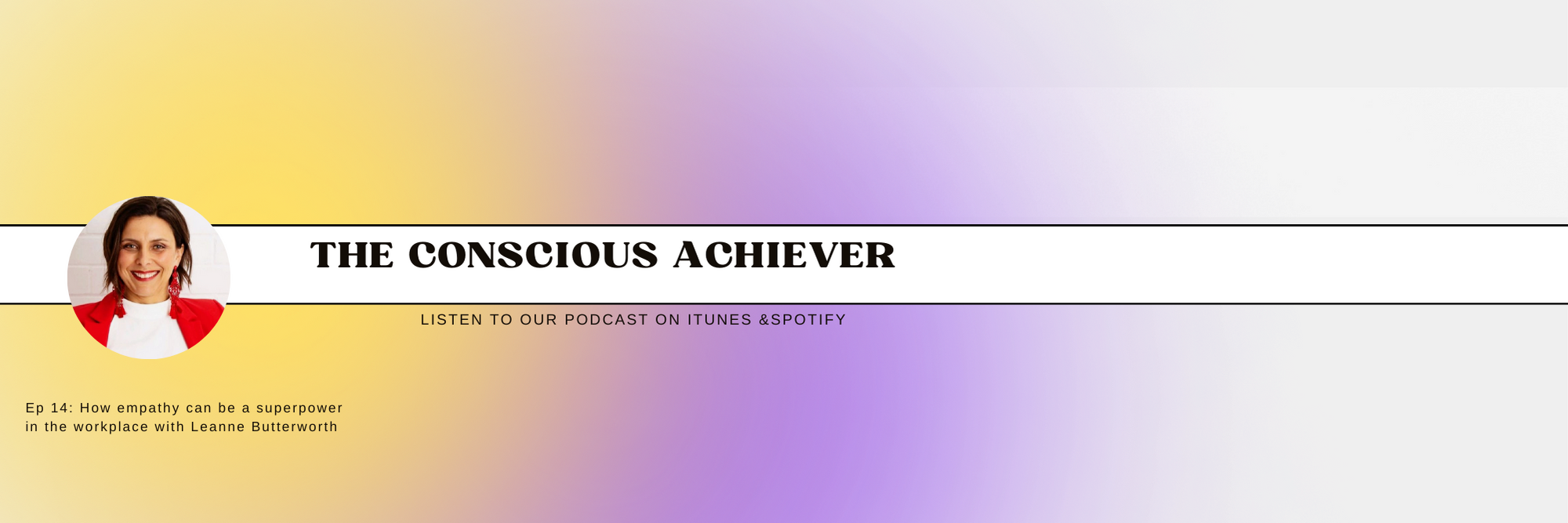
“
Understanding that our value as humans is not in what we produce or how useful we are, but in our ability to connect with other people on an emotional level that is healthy and sustainable.”
“Creating an internal culture of empathy involves having open conversations, providing feedback, celebrating wins, getting creative, fostering psychological safety, and developing a sense that if we make mistakes, we learn from them and grow.”
When describing leadership superpowers, words like "influential," "fierce," "inspirational" and "powerful" might come to mind, but "empathetic" is often overlooked. However, leaders are starting to recognize the importance of understanding their employees' feelings and external issues that may impact their work. This requires a critical skill: empathy.
In today's episode, we have a special guest, Leanne Butterworth, joining us to explore the super power of empathy in the workplace. Leanne will share insights and strategies on how empathy can be a valuable asset in the workplace, while also debunking some myths about it.
Our guest, Leanne is an Empathy Educator and Social Entrepreneur who aims to create happy and healthy workforces and communities through Empathy Training. Having experienced late-diagnosed postnatal mental health issues, she recognized the life-changing impact of empathy-based listening and communication. Leanne is the founder of Empathy First, lectures Social Enterprise Business for Queensland University of Technology, and has presented her empathy work in Australia, Canada, and the United States. She has a degree in Applied Science from UQ and a Graduate Certificate in Business (Nonprofit and Philanthropy Studies - QUT). She received a George Alexander Foundation Scholarship and was inducted onto the Nu Lambda Mu International Honor Roll. Through her experience and research, she believes empathetic leadership is not a nice-to-have but a business imperative.
In this episode, we discuss:
Empathy model in the workplace
Leanne’s experiences that led her to the empathy work
The 3 types of healthy empathy
Myths about empathy
Ways empathetic leadership unlocks employees' power and success : innovation, brand loyalty, Strengthen Relationships ....
Empathy isn't just for our customers
Framework to build more empathetic leadership
Empathy in both receiving and giving seats
Empathy , Compassion and Vulnerability
Leanne on Linkedin
Watch Leanne's TEDxQUT talk on Healthy Empathy.
New Quiz - How Empathetic is your team? https://www.empathyfirst.com.au/empathetic-teams
Empathetic Leadership Worksheet - https://www.empathyfirst.com.au/empathy-and-leadership
Ghada on Linkedin
The Conscious Achiever Newsletter
Review on iTunes
“Empathy is the ability to share and understand the feelings and perspectives of another person, and respond appropriately. This appropriate response may not necessarily be compassion; it could be something as simple as a smile, a nod, or a hug. The person may not actually need help, but giving them space to process their emotions and be heard can be incredibly useful.”
What type of achiever are you? Take the quiz
“Unhealthy emotional empathy is I take on your stuff, I feel it for you, and I don’t practice good self care. Healthy emotional empathy is boundaries, listening, curiosity, and self care. ”